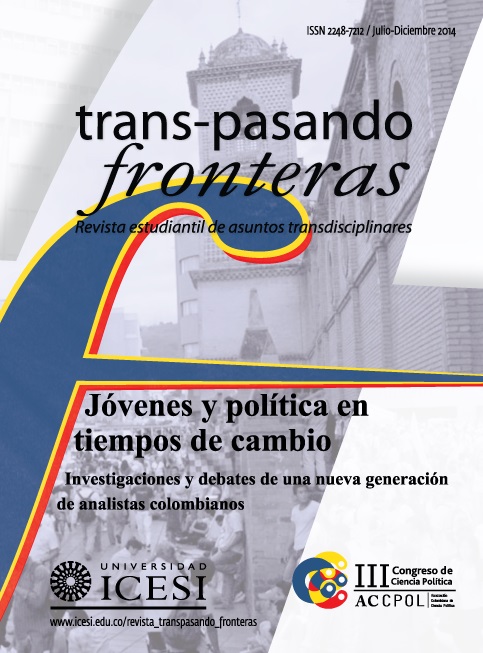Football: a catalyst for insecurity? Analysis of this social phenomenon and its incidence in security
DOI:
https://doi.org/10.18046/retf.i6.1979Keywords:
Ecnomical security, Social security, Football, Food safety,Abstract
From the time of its origins, football has been directly linked with the theme of security from different angles, inherently, reciprocal and even complementary. Nevertheless, due to its popularity, and its capacity to appeal to large audiences, its role has been misinterpreted in today´s societies. One can ask whether football plays as a catalyst to the increase of insecurity and violence. Having evidenced the vulnerabilities and sensibilities that surround this particular nexus, the following essay aims to analyze its similarities and externalities. For this, it is necessary to study the main prevarications of security and later on, compare it with the personal insights of professional football players that belong to the top European leagues (more specifically the Spanish, German, Italian and Portugal leagues). These operate as an open market for the export of national footballers, which brings a variety of benefits for both the athlete and our country as it enables Colombia to have a more relevant position in this sport´s agenda as a Soft Power. Also, it is important to take in consideration the time and money invested by footballers to contribute for the betterment of their communities.
Downloads
References
BALDWIN, D. (1980). Interdependence and power: a conceptual analysis. Wisconsin: Board of Regents of the University of Wisconsin System.
BLOYCE, D., y Smith, A. (2012). Políta Pública y Desarrollo del Deporte. (C. Parra Dussan, A. Quiñones Valero, Edits., A. Quiñones Valero, C. Parra Dussan, y J. Sierra Reyes, Trads.) New York, New York, Estados Unidos: Comité Paralímpico Colombiano.
BONIFACE:(31 de Mayo de 2006). Project-Syndicate. Recuperado el 20 de Juno de 2012, de La geopolítica del Fútbol: http://www.project-syndicate.org/commentary/the-geopolitics-of-football/spanish
BRICEÑO, G. (27 de Septiembre de 2008). El Tiempo. Recuperado el 10 de Julio de 2014, de http://www.eltiempo.com/archivo/documento/CMS-4570650
CAYUELA MALDONADO, J. (1997). Olimpyc Studies. Recuperado el 25 de Julio de 2014, de http://olympicstudies.uab.es/pdf/wp060_spa.pdf
DUQUE SOTO, L. (2 de Septiembre de 2011). El Tiempo. (El Tiempo) Recuperado el 2 de Agosto de 2014, de http://www.eltiempo.com/archivo/documento-2013/CMS-10283204
DURÁN GONZÁLEZ, J. (2012). El vandalismo en el fútbol. Una reflexión sobre la violencia en la sociedad moderna. Madrid, España: Gymnos.
FAO. (2011). Food Security. (P. CE-FAO, Ed.) Recuperado el 16 de Julio de 2014, de http://www.foodsec.org/
FUNDACIÓN DEPORTIVA JACKSON MARTINEZ (2014). Fudejam. Recuperado el 3 de Agosto de 2014, de http://www.fudejam.org/
FÚTBOL PARA EL FUTURO. (2012). Fútbol para el futuro. Recuperado el 3 de Agosto de 2014, de http://www.futbolparaelfuturo.org/#!modelo/c4f1
GUZMÁN, J. (Junio de 2002). Envejecimiento y desarrollo en América Latina y el Caribe. (C.-D. d. CEPAL, Ed.) Serie Población y Desarrollo en América Latina y el Caribe(28).
GOMIS, Josep (1989). “La violencia en el deporte “en Análisis Jurídico de la violencia en el deporte. Col•legi d’advocats de Barcelona. Barcelona.
HUENCHUAN, S., y Guzmán, J. M. (14 y 15 de Noviembre de 2006). CEPAL. (C.-D. d. Población, Ed.) Recuperado el 14 de Julio de 2014
HUERTA ROJAS, F. (Junio de 2002). Redalyc. Recuperado el 20 de Julio de 2014, de http://www.redalyc.org/pdf/325/32511306.pdf
MINUTO 116. (11 de Marzo de 2014). Didier Drogba, el ‘elefante’ que paró una guerra. Recuperado el 12 de Mayo de 2014, de Didier Drogba, el ‘elefante’ que paró una guerra: http://revistaminuto116.com/didier-drogba-guerra-costa-de-marfil/
MEDINA, Xavier (1994). “El deporte como factor en la construcción sociocultural de la identidad”, en VV.AA, Ciencias Sociales y Deporte, Investigación social y deporte, AEISAD nº1, Pamplona.
ORGANIZACIÓN INTERNACIONAL DEL TRABAJO (2001). Organización Internacional del trabajo. Recuperado el 14 de Julio de 2014
PARLAMENTO EUROPEO (1987). Dictamen sobre vandalismo y violencia en el deporte. Comisión de Juventud, Cultura, Educación, Información y Deporte. Noviembre
RECASÉNS, A. Las Barras Bravas. Facultad de Ciencias Sociales Universidad de Chile.
SUÁREZ REYES, F. (2010). Buenaventura: una ciudad-puerto, globalizante, diversa y multicultural. XIV Encuentro de Latinoamericanistas Españoles, (págs. 2488-2507). Universidad del Pacífico de Colombia.
UNISPORT (1992). I Encuentro sobre sociología del deporte”, en Apuntes UNISPORT Andalucía, nº256. UNISPORT. Málaga.
Downloads
Published
Issue
Section
License
Trans-pasando Fronteras provides immediate open access to its content on the principle that making research freely available to the public supports a greater global exchange of knowledge.
© Authors hold copyright and publishing rights without restrictions but in accordance with the CC license.
All the material in this publication can be reproduced as long as reference is made to title, author and institutional source.







